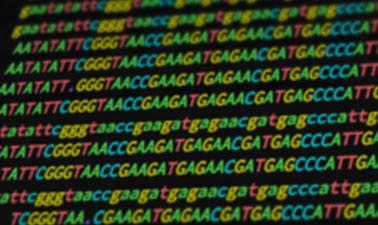- Level Awareness
- Ratings
- Duration 12 hours
- Course by Harvard University
- Total students 5,836 enrolled
-
Offered by

About
In this course you'll learn various statistics topics including multiple testing problem, error rates, error rate controlling procedures, false discovery rates, q-values and exploratory data analysis. We then introduce statistical modeling and how it is applied to high-throughput data. In particular, we will discuss parametric distributions, including binomial, exponential, and gamma, and describe maximum likelihood estimation. We provide several examples of how these concepts are applied in next generation sequencing and microarray data. Finally, we will discuss hierarchical models and empirical bayes along with some examples of how these are used in practice. We provide R programming examples in a way that will help make the connection between concepts and implementation.
Given the diversity in educational background of our students we have divided the series into seven parts. You can take the entire series or individual courses that interest you. If you are a statistician you should consider skipping the first two or three courses, similarly, if you are biologists you should consider skipping some of the introductory biology lectures. Note that the statistics and programming aspects of the class ramp up in difficulty relatively quickly across the first three courses. By the third course will be teaching advanced statistical concepts such as hierarchical models and by the fourth advanced software engineering skills, such as parallel computing and reproducible research concepts.
These courses make up two Professional Certificates and are self-paced:
Data Analysis for Life Sciences:
- PH525.1x: Statistics and R for the Life Sciences
- PH525.2x: Introduction to Linear Models and Matrix Algebra
- PH525.3x: Statistical Inference and Modeling for High-throughput Experiments
- PH525.4x: High-Dimensional Data Analysis
Genomics Data Analysis:
- PH525.5x: Introduction to Bioconductor
- PH525.6x: Case Studies in Functional Genomics
- PH525.7x: Advanced Bioconductor
This class was supported in part by NIH grant R25GM114818.
What you will learn
- Organizing high throughput data
- Multiple comparison problem
- Family Wide Error Rates
- False Discovery Rate
- Error Rate Control procedures
- Bonferroni Correction
- q-values
- Statistical Modeling
- Hierarchical Models and the basics of Bayesian Statistics
- Exploratory Data Analysis for High throughput data
Skills you learn
- DNA Sequencing
- Maximum Likelihood
- Bioconductor (Bioinformatics Software)
- Statistics
- Matrix Algebra
- Statistical Inference
- Software Engineering
- Functional Genomics
- Linear Model
- Exploratory Data Analysis
- Life Sciences
- R (Programming Language)
- Data Warehousing
- Statistical Modeling
- Research
- Next-Generation Sequencing
- Biology
- Bayesian Statistics
- Data Analysis
Auto Summary
"Statistical Inference and Modeling for High-throughput Experiments" is an edX course in IT & Computer Science, focusing on techniques for statistical inference with high throughput data. Designed for awareness-level learners, the course spans 12 weeks and offers both Professional and Starter subscription options.

Rafael Irizarry

Michael Love


